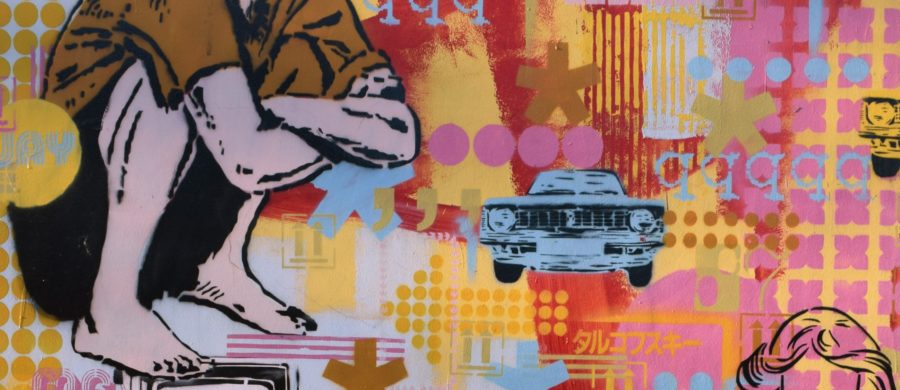
Dialogues: History of Technology in Africa and the Americas in the Twentieth Century
Technology’s Stories v. 8, no. 2 – DOI: 10.15763/jou.ts.2020.09.28.09
Jethron Ayumbah Akallah, Maseno University, Kenya
Christiane Berth, University of Graz, Austria
Fon Gordon, Department of History, University of Central Florida, USA
Robert Heinze, University of Trier, Germany
Diana Montaño, Department of History, Washington University in St. Louis, USA
Yovanna Pineda, University of Central Florida, USA
Sonia Robles, University of Delaware, USA
Mikael Wolfe, Stanford University, USA
Introduction
The authors of this issue of Technology’s Stories are sharing our work-in-progress in Technology’s Stories to stimulate conversations and investigation about users of technology in the Global South. This issue addresses users’ strategies to appropriate various technologies during the twentieth century. We analyze how users dealt with technological deficiencies, how they adapted technology for improved local use, and how they were represented in contemporary visuals.
We first met to discuss this subject in June 2018, making a strong effort to bring together scholars from different fields, and geographical specialties. Dr. Christiane Berth at the University of Bern in Switzerland organized a workshop called “The Role of Users in Global Technological History”, with a followup at the Society for the History of Technology Annual Meeting in Milan, Italy in 2019. After these two successful meetings, we organized a second workshop for 2021 to finalize papers and publish them in an edited volume or journal series. (https://chdr.cah.ucf.edu/rgp/index.html).
Our stories focus on how users in the Global South diffused their own perspectives and influenced cultural norms about the use, design, and re-development of technology. In particular, we are interested in their ways of seeing and working with old and new technology. New ways of doing things or new ways of viewing technology could become a source of empowerment for a community or individual, or the explicit and implicit rules governing it could exacerbate the social divide between the privileged and underprivileged. We examine how users—elite or popular classes and across ethnic groups—used their agency (defined as the ability to influence decisions affecting their lives) accessed or re-created different technologies, including telephones, transportation, radio, sundry machinery, and water provision in Africa and the Americas. At the same time, the essays also address how various media represented users in published articles, caricatures, photos, broadcasts, or drawings.
Never passive recipients of modern technology, some local users of the Global South obtained outside technology and not only developed the skills to employ it, but also devised improvements and new uses for it. Indeed, in addition to acquiring practical knowledge and skills in repair and maintenance, local users made tangible, physical adaptations to the machinery and systems that they sought. While much of this process was informal and centered on practical, everyday problems, it was dynamic enough that users could, over time, produce technologies strikingly different from the original; hence, their new ways of seeing were critical for the process of innovating to best fit their environment. The reception of new technologies was also an important theme in state and private advertising and media. Representations of technology and agency of users mutually influenced one another: On the one hand, visual material influenced peoples’ technological practices while also shaping or reinforcing social, racial, and gendered prejudice inherent in the use of technologies. On the other hand, users’ daily routines as well as failed encounters with new technologies entered the visual repertoire of societies in Africa and the Americas.
In “Dialogues: History of Technology in Africa and the Americas,” our eight writers discuss three different topics: (1) access to communication, water, and transportation systems; (2) repair and maintenance during periods of economic or geopolitical isolation, and (3) the visualization of users in media. Below we briefly discuss each category:
Category 1 (Infrastructure): Jethron, Christiane, Robert, & Sonia
Accessing new infrastructure such as potable water systems, telephone lines, electric buses, and short-wave radios, was not only a technical challenge. Even elites who could afford to access them and technically use them at first had to adapt to them culturally and socially too. Whether such infrastructure could become more widely accessible and be diffused both nationally and internationally often depended on the middle and lower classes socially accepting elite use of the technology.
Category 2 (Repair): Yovanna and Mikael
In addition to acquiring practical skills in repair and maintenance of machinery, local users in Cuba and Argentina developed great pride in do-it-yourself (DIY) projects as represented in documentary film and state media. So much so that during periods of national isolation (1930s-1960s), these nations’ military and populist governments proudly recognized DIY culture because it ostensibly demonstrated that their citizens didn’t need foreign powers to industrialize, while spinning it positively in their media buttressed anti-imperialist populism.
Category 3 (Visual): Diana & Fon
Guidelines for use, advertisements, and caricatures left a rich visual repertoire for exploring notions of race and gender, development visions, or social norms. These two stories highlight narratives of success and failure of different technologies around the world.
Yovanna Pineda, Ph.D. is Associate Professor of History at the University of Central Florida, and Director of Stories of the Harvester.
Christiane Berth, Ph.D. is Chair of Contemporary History at the University of Graz, Austria.
Mikael Wolfe, Ph.D. is Assistant Professor History, Stanford University.
Copyright 2020 Yovanna Pineda, Christiane Berth, Mikael Wolfe
